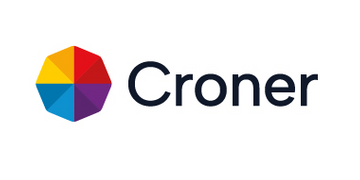Key steps to take and important signs to look out for
During the summer of 2019, two high-profile cases of modern-day slavery (MDS) within the waste sector made newspaper headlines. In June, a father and son were jailed having forced a vulnerable man to live and work at their scrap yard. The father was given 10 years in jail and the son, who was 19, six years at a young offenders’ institution. In the second case, members of an organised gang who trafficked up to 400 people to the West Midlands to work in a range of jobs, including at waste sites, were jailed for a combined 55 years.
Given the structure of the sector with multiple players in the supply chain, it is important that companies remain vigilant for possible cases of MDS within the suppliers or, indeed, within any agency staff.
There are some key steps companies can take and important signs to look out for when looking for cases of MDS whether this is in agency staff or within the supply chain. Clearly, employers may not be able to identify all these signs or check all these touchpoints; they are indicative only.
Observations:
- Language barriers aside, the person may be timid, fearful and shutdown. They may not make eye contact and refuse (or be reluctant to engage in) conversation if they can speak English.
- They may have a shabby appearance and/or seem not to have access to a bathroom or facility to wash clothes.
- They may also have very few personal belongings.
- They may not eat lunch or have money to buy food. They may therefore appear undernourished.
- They may show signs of physical abuse, such as cuts, bruising or lacerations.
Ask yourself:
- Do they have access to their own personal documentation?Is their movement restricted? Are they delivered and collected at the same time every day? (This may be at times outside the working day). Do they have any concept as to their geographical location?
- Is their salary paid into bank account under their name? Are multiple salaries paid into the same bank account?
- Do multiple workers live at the same address?
- Do they have access to their own equipment (where applicable) and/or PPE?
- Are they working longer-than normal hours?
What can you do?
Under Section 54 (Transparency in Supply Chains) of the Modern Slavery Act 2015, the UK Government requires any commercial organisation to publish an annual statement if all the criteria below apply:
- it is a ‘body corporate’ or a partnership, wherever incorporated or formed
- it has an annual turnover of £36 million or more
- it carries on a business, or part of a business, in the UK
- it supplies goods or services.
However, it would be best practice for all companies to consider developing and publishing an MDS statement every financial year. Most statements include, but are not limited to, the following information:
- Introduction
- Your Organisation
- Your Supply Chain
- Policies, including working with Suppliers and a whistleblower Policy
- Due Diligence
- Training.
What to do if you suspect a case of MDS?
Whichever steps you take, do not let the worker(s) know that you have concerns, intend to or have reported their situation. Certainly, do not confront the people you suspect are controlling the worker.
- Call the Modern Slavery Helpline on 08000 121 700 or fill out an online form found on modernslaveryhelpline.org/report.
- Call Hope for Justice: (+44) 0300 008 8000 (local rate call) or contact [email protected]
- Contact the Gangmasters and Labour Abuse Authority to report concerns about the mistreatment of workers on 0800 432 0804, or by email [email protected]
- Contact Crimestoppers on 0800 555 111
- Contact the Police
- Contact Anti-Slavery International or other specialist anti-slavery organisations
You will need to describe what type of abuse or exploitation you suspect or believe you have witnessed. If known, state the nature of the work/actions people are being asked to perform. Where possible, include gender, age and any other relevant factors.



